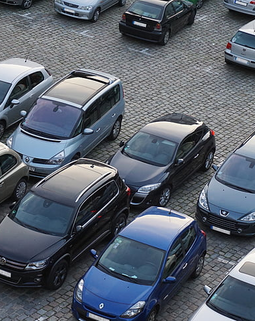Myanmar is experiencing a significant shift in its automotive landscape as more drivers are turning to electric vehicles (EVs). The country is seeing a growing preference for Chinese-made EVs, which are becoming increasingly popular due to their affordability, availability, and alignment with the global trend towards sustainable transportation. This transition reflects Myanmar’s commitment to reducing its carbon footprint and embracing modern technology.
Chinese-Made EVs: Dominating the Myanmar Market
The influx of Chinese-made electric vehicles in Myanmar has been a game-changer for the country’s automotive market. Chinese manufacturers have been quick to capitalize on the rising demand for EVs, offering a range of affordable and efficient models that cater to the needs of Myanmar's consumers. These vehicles, known for their cost-effectiveness and advanced technology, have become the preferred choice for many Myanmar drivers.
Chinese brands such as BYD, NIO, and Geely are leading the market, providing models that are not only competitively priced but also reliable and well-suited for Myanmar’s road conditions. The availability of spare parts and after-sales services has further boosted the appeal of these vehicles, making the transition to electric vehicles more seamless for Myanmar’s drivers.
Economic and Environmental Impacts: A Win-Win for Myanmar
The shift towards electric vehicles in Myanmar is expected to bring significant economic and environmental benefits. On the economic front, the adoption of EVs can help reduce the country’s dependence on imported fossil fuels, leading to substantial savings on fuel costs. Additionally, the growth of the EV market could create new business opportunities in areas such as vehicle maintenance, battery recycling, and the development of charging infrastructure.
Environmentally, the widespread use of electric vehicles will contribute to a reduction in air pollution and greenhouse gas emissions, particularly in urban areas like Yangon and Mandalay. As Myanmar continues to grapple with the effects of climate change, the transition to cleaner transportation solutions like EVs is crucial in mitigating environmental damage and promoting public health.
Challenges and Opportunities: Navigating the EV Transition
Despite the growing popularity of electric vehicles, Myanmar faces several challenges in achieving widespread adoption. One of the main obstacles is the lack of adequate charging infrastructure across the country. While there have been efforts to establish charging stations in major cities, rural areas remain underserved, making long-distance travel in EVs challenging.
Another challenge is the high upfront cost of electric vehicles, which, despite being lower than many traditional cars, can still be prohibitive for a significant portion of the population. However, as the market grows and technology advances, prices are expected to become more competitive, making EVs accessible to a broader range of consumers.
The government of Myanmar, recognizing the potential of EVs, has started to implement policies aimed at supporting their adoption. These include tax incentives, import duty reductions for EVs, and initiatives to promote the development of charging infrastructure. Such measures are crucial in overcoming the initial barriers to EV adoption and encouraging more drivers to make the switch.
The Road Ahead: A Sustainable Future for Myanmar
Looking ahead, Myanmar’s transition to electric vehicles holds promise for a more sustainable future. As more drivers opt for EVs, the country is likely to see continued investment in infrastructure and technology, further accelerating the adoption of electric vehicles. Additionally, with the support of the government and international partners, Myanmar could position itself as a regional leader in the shift towards sustainable transportation.
The success of this transition will depend on the collaborative efforts of various stakeholders, including the government, private sector, and consumers. By addressing the existing challenges and leveraging the opportunities, Myanmar can pave the way for a cleaner, more efficient transportation system that benefits both the economy and the environment.
Conclusion: Embracing Electric Vehicles for a Greener Myanmar
Myanmar’s shift towards electric vehicles, particularly those made in China, marks a significant step in the country’s journey towards sustainability. As drivers continue to embrace EVs, Myanmar is poised to reap the economic and environmental benefits of this transition. With the right policies and infrastructure in place, the country can ensure that its transportation sector contributes positively to its long-term development goals and environmental sustainability.





